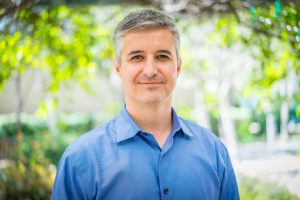 Tolerance, withdrawal and chronic disease are just some of the issues that individuals face when drug abuse highjacks the reward system of the brain. In the first Dean’s Distinguished Lecture of the 2018-2019 School year, Neurobiology and Behavior Chair Marcelo Wood told a packed audience a compelling story on the biology of addiction, a very hot topic in today’s news. Drugs of addiction are responsible for thousands of lives annually and cost the country over $740 billion a year. Addictive substances such as cocaine and opioids can interact with the reward pathways of the brain and turn what normally works to promote survival behaviors into drug-seeking and dependence.
Tolerance, withdrawal and chronic disease are just some of the issues that individuals face when drug abuse highjacks the reward system of the brain. In the first Dean’s Distinguished Lecture of the 2018-2019 School year, Neurobiology and Behavior Chair Marcelo Wood told a packed audience a compelling story on the biology of addiction, a very hot topic in today’s news. Drugs of addiction are responsible for thousands of lives annually and cost the country over $740 billion a year. Addictive substances such as cocaine and opioids can interact with the reward pathways of the brain and turn what normally works to promote survival behaviors into drug-seeking and dependence.
In his powerful lecture, Professor Wood took the audience on the path that led him to answer the question, “Can the deletion of HDAC3 enhance the extinction of drug relapse.” The protein HDAC3 was capable of strengthening memories, and he wanted to know if it could help prevent drug relapse by fortifying memories related to drug extinction. His research, using a prominent animal model of drug dependence, did find that HDAC3 deletion could indeed help with the extinction of drug relapse.
Professor Wood shared some amusing and poignant stories about his journey as a researcher and award-winning teacher. He told the audience he will continue his work in addiction research and concluded by saying he’s hopeful his studies on HDAC3 can someday be translated into the clinic.
